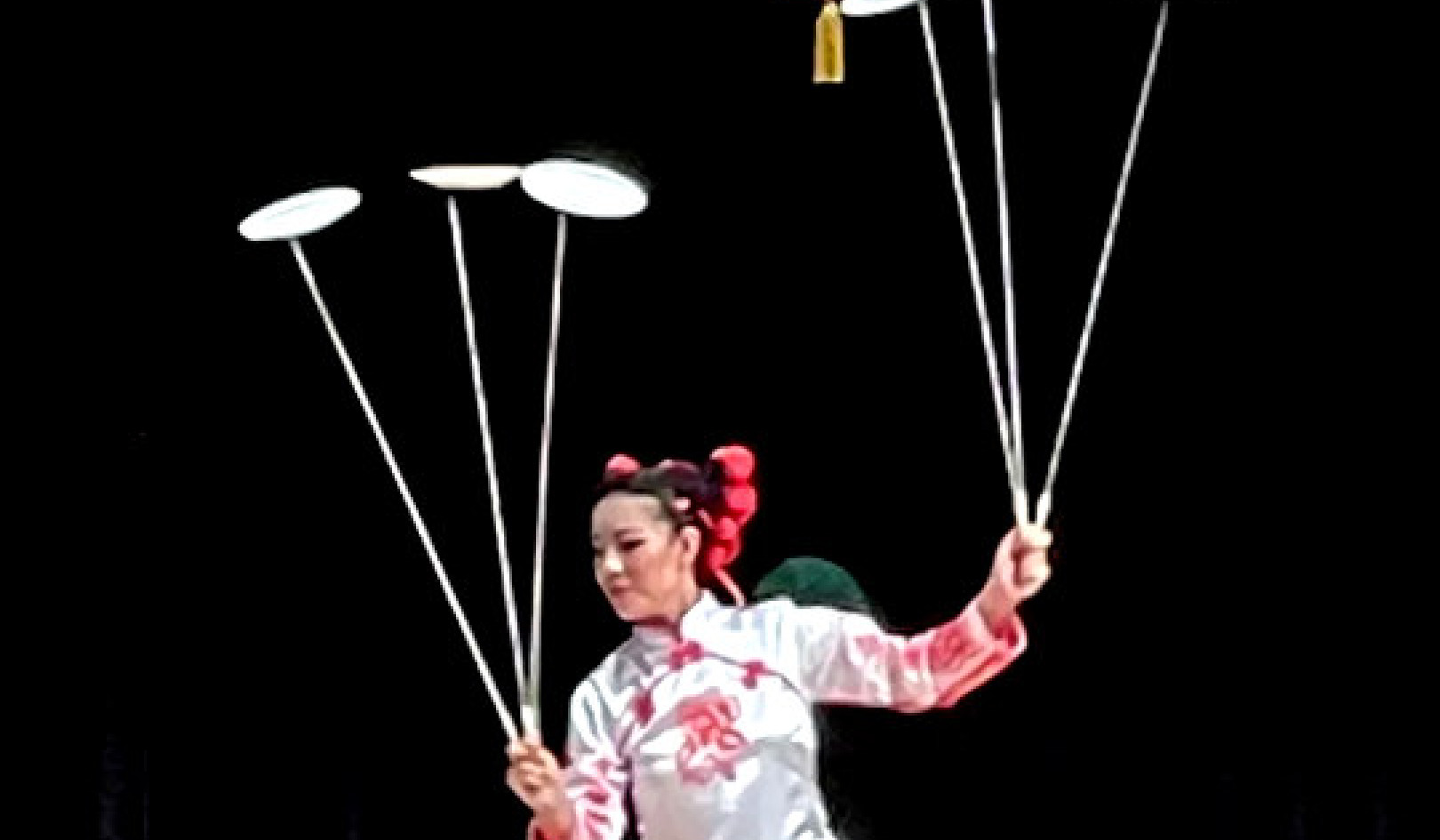
I don't know what happened to emotions in this society. They are the least understood, most maligned, and most ridiculously over-analyzed aspects of human life. Emotions are categorized, celebrated, vilified, repressed, manipulated, humiliated, adored, and ignored. Rarely, if ever, are they honored.
Many psycho-rational therapies, religions, and New Age teachings split emotions into categories like good and bad and then spend enormous amounts of time and energy teaching their respective disciples to agree with them. In order to truly fit in, followers must court, invoke, and experience the teachings' accepted emotions while they ignore, pray away, and run from the forbidden ones.
The only problem is that the therapies and teachings can't seem to agree on which emotions are right, and which are wrong. Some religions and teachings shun all emotions, while others shun only anger and fear. Most New Age teachings make do with one emotion (joy), and strive to sublimate the rest. As in any perfection-instead-of-wholeness regime, the damage caused by the denying of true human emotions creates truly inhuman problems.
Expressing Emotions or Repressing Them: Our Only Choice?
In our society, the "bad" emotion is grief. After a few hundred years of repression, we have become a cold-hearted people, mesmerized by, but incapable of accepting, death. Disallowed, repressed anger turns to inner rage, torment, and suicidal urges, while denied fear turns into panic attacks, spirit/body splits, and an underlying distrust of people and life in general. These are the rewards of repressing the emotions.
Expressing the emotions is better than repressing them, because it allows a flow of truthfulness in the body and spirit. If emotions are very strong, however, expressing them can create both exterior and interior turmoil. The exterior turmoil occurs when we pour our strong emotions all over some unfortunate soul and try to make him or her responsible for our mood. The interior turmoil occurs when we realize we have startled or hurt someone with our outpouring, which makes us feel dismayed and ashamed of ourselves. Then we either repress the emotions again, or express them even more loudly, neither of which will help anyone.
Often, our strong emotions make us lash out and blame others for our feelings, which traps us into believing that someone else is in control of our emotions ("You made me angry, you made me cry!"). Expressing strong emotions can be damaging to our egos.
An Alternative to Repression or Emotional Expression?
So, what's left? If we can't repress emotions without getting into trouble, and we can't express them either, what can we do, live in a cave? No. We can channel our emotions.
When we express our emotions, we hand them over to the outside world, where we hope they will be noticed, honored, healed, and transformed into something bright and beautiful. Emotional expression relies on the exterior world and on other people to decipher and transmute emotional messages into action. When we repress emotions, we hand them over to the interior world, where we hope they will be taken care of, healed, and transformed into something more acceptable to us. Emotional repression relies on the unconscious, interior world to accept and do something with the emotion.
Neither hand-off works for very long. Emotional expression makes us unworkably dependent on therapists, books, friends, family members, clergy, and external action for emotional relief and release. Since all of these exterior people or supports can leave or be taken away, we emotion-expressers can become stuck with a life full of feelings, but no emotional skills of our own, and nowhere to go with the feelings and energies we have.
Emotional repression, on the other hand, makes us unworkably dependent on a body or an unconscious that can only hold so much repressed material before it has to get rid of something. When you hand off your emotional responsibilities to your body, it stores them somewhere until they eventually show up as pain or illness. If you hand- off to your unconscious and tell it, "No anger or grief, okay?" your unconscious works very hard to obey you, but it has to create something else with all your angry, grieving energy. Suicidal urges usually do the trick.
Listen to, Honor, and Channel Your Emotions
Both the expression and repression of emotion have serious drawbacks. The hand-off never works. On the other hand, when you listen to, honor, and channel your emotions, you don't need to hand them off to anyone or anything. Emotional channeling lets you handle your emotions yourself. When you are able to take care of your own emotions, they will take care of you in ways you may not be able to believe right now.
All emotions are messages from our unconscious aspects to our conscious ones. Emotions may spring from our bodies, from our deep memories, or from unused and unnoticed aspects of our psyches. They carry with them the absolute truth of the sending aspect. Strong or uncontrollable emotions carry, not just truth, but enormous amounts of energy, which is the essence of this work. Strong energy makes this work stronger. Therefore, strong emotions carry absolutely all the healing energy we need to deal with whatever brought about the strong emotion in the first place. Strong emotions contribute the energy we need to heal ourselves and evolve. Strong emotions are the energetic warehouse of the soul.
Expressing and repressing emotions are subtle ways to leave your body and your experience, and to squander your energy. Though you may remain grounded and in the room in your head while you pour your emotions all over someone (or ignore an unacceptable feeling), these are not centered or aware actions. You can get away with them for a while in a grounded and centered body, but eventually, your refusal to accept and honor your emotions will activate the old spirit/body split again. To circumvent any further dissociation, let's learn to honor and channel our emotions.
Emotions: Tools for Our Use
All emotions are tools for our use, if we accept them, channel them responsibly, and take the time to listen to their healing messages. Not surprisingly, the "bad" emotions can bring us amazing insights, because they carry so much energy with them. Anger and fury can signal a lack of boundaries, and then contribute the energy to rebuild those boundaries into strong protectors. Sadness and despair can signal an arid harshness in the self or the environment, and then contribute the healing fluidity that was missing. Anxiety, fear, and terror can signal the presence of dangerously wrong people, ideas, or environments, and then contribute protection, or the energy to move out of harm's way. Grief signals loss, and then contributes the energy to cherish, honor, and release the lost entity. Suicidal urges demand liberty or death, and, when channeled, contribute the energy to kill off unworkable aspects of life and to liberate the spirit from unendurable pain (without killing the body).
People who dishonor, repress, or irresponsibly express their emotions are taken over by them. Emotional channelers take over the emotions instead, and use their energy in healing. Emotional channeling reminds us that a healthy psyche is a complete one. Completeness includes light and dark, good and bad, love and hate, perfection and flaws, solemnity and silliness, wisdom and idiocy, and everything else.
If you attend only to the nice-nice parts of yourself, you become dissociated, no matter how grounded you may appear. If you ignore your own shadowy emotions and try to hide them, or throw them out with the trash, they may loom up and attack you with a sword created out of all your own repressed energy. Ouch. When you accept and channel your "bad" emotions, the sword retreats; it becomes, instead, a ceremonial dagger with which you may cut away the lies, contracts, unworkable attachments, and shackles in yourself. When you accept and honor the power and wisdom of your shadow, you become a multi-dimensional, whole human being.
Emotional channeling does not interfere with the expression of our needs, feelings, and moods to the aware and supportive people in our lives. Rather, it offers a stronger (and more personally empowering) support. When we work with the energetic material of our own emotions, we no longer need to rely on others to help us deal with or validate them.
If you have been to a competent therapist, you will recall that, in the office, all emotions, reactions, dreams, and ideas were acceptable. When you channel your emotions, you can create this exact atmosphere for yourself at any time. In the safety of your own meditative sanctuary, you can bring your Earth-wise body, your energy-and-information-filled emotions, your intellectual brilliance, and your spiritual awareness to bear on any difficulty, question, mood, or opportunity that arises -- and save thousands of dollars in therapy fees.
When you can bring your emotions to bear on your life's issues, you will move through them with a fluid ease and grace. Your fluidity may require periodic yelling, crying, reacting, and stomping, but these momentary reactions won't bother you. You will have matured enough to accept your emotions as they are. When you accept, honor, channel, and refuse to punish your emotions, your life will flow more easily.
In order to remain whole and alive from this moment forward, you'll need an environment that lets you cry when you're sad, squeal and jump when you're exhilarated, move quickly when you're anxious, protect yourself when you're fearful, stomp and snap when you're angry, dance when you're happy, and grieve when you lose someone or something. Whole people accept and honor all human emotions. Whole lives require them.
Your life right now may not be whole, but when you commit to channeling your emotions, you will move toward completeness. Your inner life, at least, will be the environment where you will be free to feel.
Reprinted with permission from the publisher:
Samuel Weiser Inc., York Beach, ME. ©1998
www.weiserbooks.com
Article Source:
Your Aura & Your Chakras: The Owner's Manual
by Karla McLaren.
 A clear and comprehensive text for the restoration and maintenance of your subtle energy system. McLaren, who has worked with survivors of abuse and trauma, shows how to clear the chakras of old hurts and to cleanse and strengthen the aura for protection against invasive energy. Bibliography. Index.
A clear and comprehensive text for the restoration and maintenance of your subtle energy system. McLaren, who has worked with survivors of abuse and trauma, shows how to clear the chakras of old hurts and to cleanse and strengthen the aura for protection against invasive energy. Bibliography. Index.
Click here for more info and/or to order this book. (newer edition/different cover)
About The Author
 Karla McLaren has studied spirituality for thirty years, exploring many forms of healing. She has focused her practice for the last fifteen years on survivors of dissociative trauma. She is an author and teaches and lectures nationwide. Her previous two books, Rebuilding the Garden : Healing the Spiritual Wounds of Childhood Sexual Assault and Further Into the Garden: Discovering Your Chakras are chronicles of her work with survivors of sexual abuse. Her website is KarlaMcLaren.com.
Karla McLaren has studied spirituality for thirty years, exploring many forms of healing. She has focused her practice for the last fifteen years on survivors of dissociative trauma. She is an author and teaches and lectures nationwide. Her previous two books, Rebuilding the Garden : Healing the Spiritual Wounds of Childhood Sexual Assault and Further Into the Garden: Discovering Your Chakras are chronicles of her work with survivors of sexual abuse. Her website is KarlaMcLaren.com.
Video/Presentation: A Short Take on Sadness, Grief, and Depression
{vembed Y=d_i0r2aEUM4}
Watch another video with Karla McLaren: The Emotional Flow of Dealing with Sadness






















